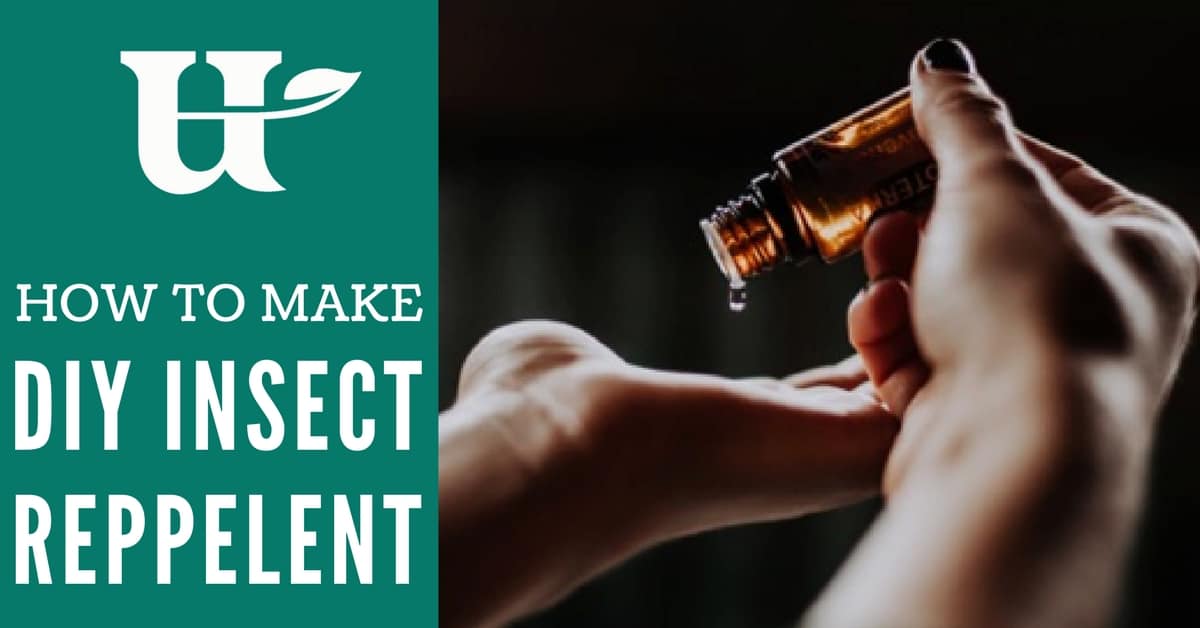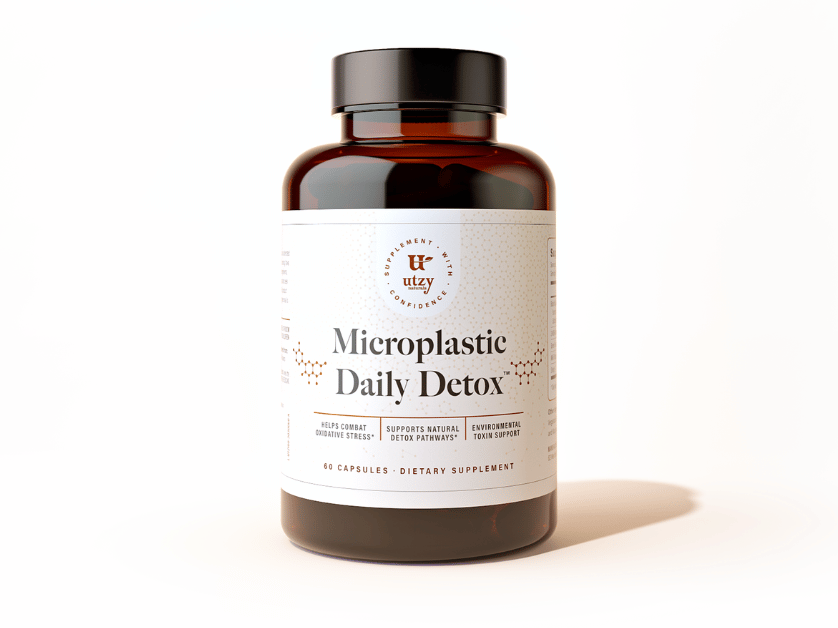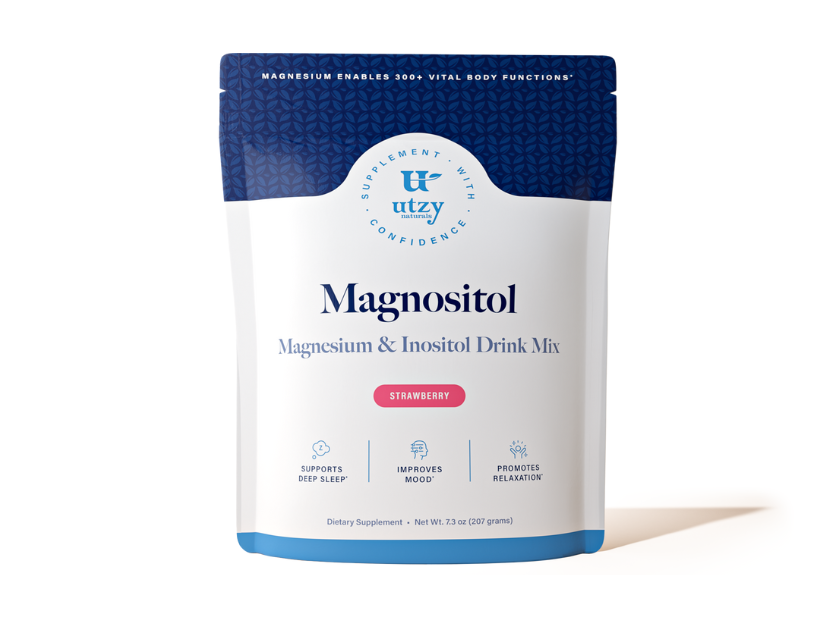shop
learn

DIY Natural Bug Repellent with Essential Oils
February 01, 2018 5 min read
Essential oils have always had household uses that, in modern times, we would associate with chemical products. Even today, many people substitute these oils for harsh chemicals in a variety of ways.
Natural essentials oils are used for medicine, cleaning and even as an alternative to traditional insect repellents.
For repelling bugs, traditional chemical formulations usually rely on poisonous ingredients (such as DEET), but there are safer ways to keep insects at bay.
We go over these below.
DEET in Insect Sprays
The chemical called DEET has a long scientific name (N,N-Diethyl-3-methylbenzamide). Since the discovery of the insect-killing properties of DEET, it's had helpful applications such as protecting soldiers engaged in jungle warfare and controlling insect-borne illnesses.
For example, DEET is recommended by the Centers for Disease Control (CDC) for people traveling to countries where malaria is prevalent.
For everyday use, however, DEET may not be needed to protect people from biting insects. There are many essential oil formulations that can be applied to the skin to deter the insects from biting.
Some essential oils can also be burned to create a smoke that repels them. For example, citronella candles are useful for creating an atmosphere at your campsite that deters mosquitos.
Origin and Source of Essential Oils
Essential oils are called natural oils because they're plant-based. Specialized plant cells produce the oils, and various parts of each plant are used to create them.
The bark, stems, or underside of leaves are typical production areas of a range of plants that produce essential oils. The oil is extracted by crushing these parts of the plant and isolating the oil using water or steam.
Alternatives to DEET
One of the most promising essential oil alternatives to DEET is lemon eucalyptus oil. Studies have shown that products containing it provide the same protection as bug repellents that contain low levels of DEET. Lemon eucalyptus oil comes from the leaves of the Australian lemon eucalyptus tree.
There are other natural oils besides citronella and lemon eucalyptus that are useful for keeping away biting pests.
Lemongrass, tea tree and peppermint oils are also repellents, and there's anecdotal evidence that neem oil, garlic oil and vanilla extract are also effective at keeping away biting insects. Here's a list of some plants known to repel insects:
•Basil
•Catnip
•Cedar
•Cinnamon
•Citronella
•Clove
•Eucalyptus
•Geranium
•Lavender
•Lemon
•Lemongrass
•Orange
•Oregano
•Peppermint
•Pine
•Rosemary
•Tea Tree
Essential Oil Blends
Blending a few different essential oils together can have a synergistic effect and can create a more effective natural insect repellent. Keep in mind, blends should be used at full strength, but mixed with a base like witch hazel or distilled water.
Witch hazel is an oil derived from the witch hazel shrub, and formulations are made with a 14 percent alcohol solution in water. When blended with alcohol and water, the witch hazel creates a mild astringent that dries, leaving the active essential oils behind to do their job.
The solution that you add your essential oil to is called a carrier, since it carries the properties to your skin or the air around you. Water-based carriers like witch hazel are absorbed more easily by the skin.
One tip for blending essential oils in a water base is to shake the solution vigorously each time it's applied, since oil and water don't mix.
Carrier oils will create a film on the skin and not be absorbed as quickly. Shea butter and cocoa butter are pleasant smelling semi-solid oils that will act as a barrier between your skin and annoying insects.
If you blend insect-repelling oils with one of these oil-based carriers, you'll have a natural and effective repellent.
Here are a couple of insect repelling recipes to try on your next camping trip:
Mosquito-Repelling Spray
•12 ounces witch hazel
•15 drops lemongrass oil
•15 drops citronella oil
•10 drops peppermint oil
•10 drops tea tree oil
Simply add all of these ingredients together in a jar with a tight lid, and make sure there's enough room for the vigorous shaking.
Once it's well-mixed, immediately fill a spray bottle with the solution, and remember to shake it well with each application.
Mosquito-Repelling Lotion
•4 ounces fractionated coconut oil
•6 drops citronella oil
•6 drops eucalyptus oil
•8 drops lavender oil
•8 drops lemongrass oil
•8 drops tea tree oil
This is a recipe that you'll enjoy if you have dry skin because of the coconut oil that acts as the carrier. All of the oils except for tea tree have pleasant scents, so you can experiment with whether you want to include it in the recipe.
However, it's good to have tea tree oil on hand for treating insect stings, since it's a natural disinfectant.
Essential Oils for Health
One reason that the use of essential oils is so attractive when compared to chemicals like DEET is the benign effect on human beings. These oils aren't poisons and, in mild concentrations, can be beneficial in many ways.
Like any product you use to keep away pests, following instructions will allow you to use safe concentrations that will get the job done without causing any harm to users.
Some Oils Aren't Suitable for Use
Before making your own substitutions in any insect-repelling recipe, make sure that you know which oils not to use. These oils are phototoxic, which means that when they react with the sun they can cause skin damage:
•Angelica Root
•Bergamot (also available in a supplement form)
•Grapefruit
•Lemon
•Lime
•Mandarin Leaf
•Bitter Orange
•Rue
Besides avoiding these oils, be sure and test a small spot on your skin for sensitivity before using a homemade insect repellent on all the exposed parts of your body.
Some of the natural ingredients we've discussed like cinnamon, clove and oregano, are not recommended for pregnant women. And peppermint is not recommended for children under 30 months old.
There's a lot of overlap in the essential oils used to repel fleas and mosquitos, but the oils used to repel ticks are more toxic and most are on the list to avoid during pregnancy.
Some of these are rose grapefruit, geranium, juniper, oregano, rosewood, and thyme.
Use Essential Oils Responsibly
Essential oils are a useful and safe alternative to using bug sprays that contain toxic chemicals like DEET. As with any substance used on your body, it's important to always be conscious of safety.
When following a recipe, stick to the portions recommended for each oil, and remember that 'more' is not 'better'. Essential oils are extremely concentrated, and you only need a small amount to get the effect you want.
If you get any essential oil in your eyes, immediately flush them with milk or cream to dilute the oil, since oil and water don't mix. If you accidentally get the oil directly on your skin, rub it with vegetable oil or any carrier oil before using soap and water to remove it.
Follow the guidelines for children and pregnant women, and check with your doctor if you're not sure which essential oils to avoid.
Safe, Effective and Natural
Using essential oils to create insect repellents is an easy and economical way to keep mosquitos at bay when you're camping. The oils have other uses, like keeping away fleas and ticks, depending on the formula. Since they're highly concentrated, it's important to use natural oils responsibly and safely.
Besides fighting off stinging insects, some oils have beneficial properties, and the carriers you choose may moisturize your skin while protecting it from insect bites. Try making your own bug spray or lotion on your next camping trip!
__________________________________________________________________
Paul Turner is the man behind TakeOutdoors.com which he shares all his knowledge and experiences on camping. Looking for a challenging camping activity? He’s got a comprehensive beginner guide to backcountry camping get you started.
Leave a comment
Comments will be approved before showing up.
Also in Health
Subscribe
Sign up to get the latest on sales, new releases and more …
Join the Utzy Naturals Club!
Sign up and get the latest on sales, new releases, and more...






